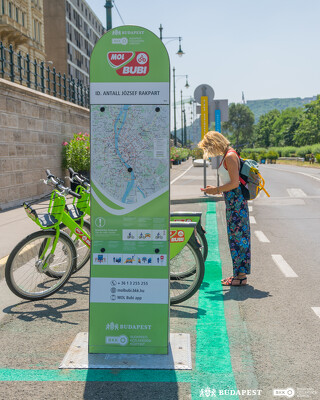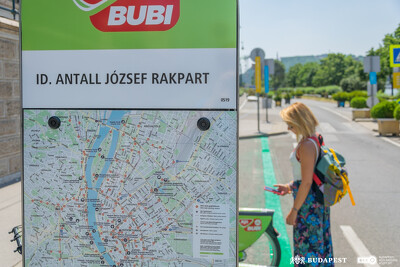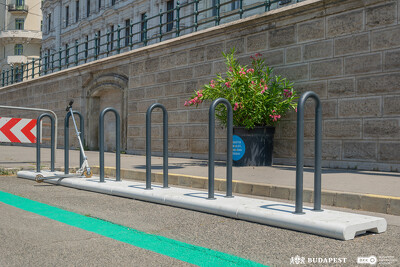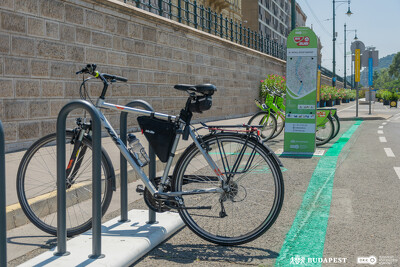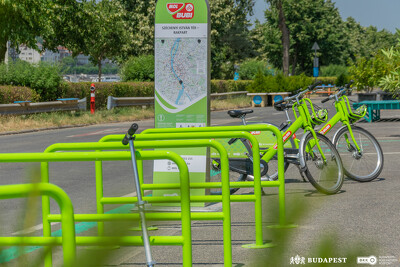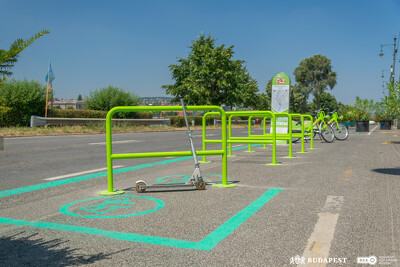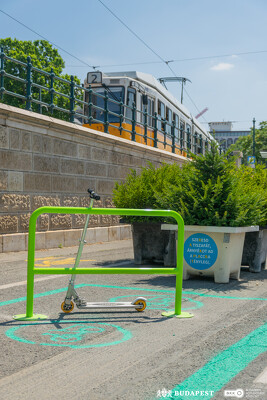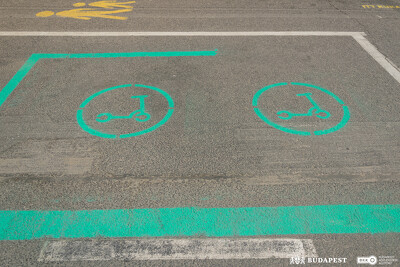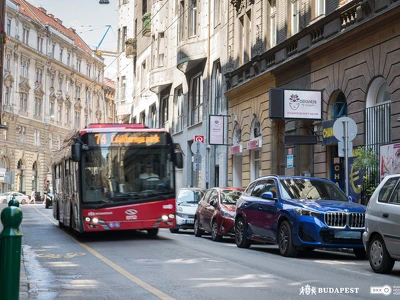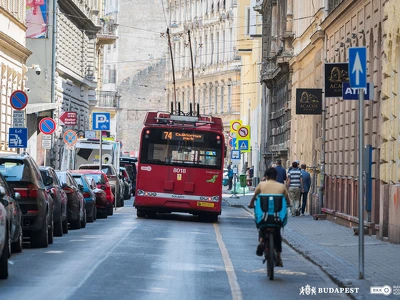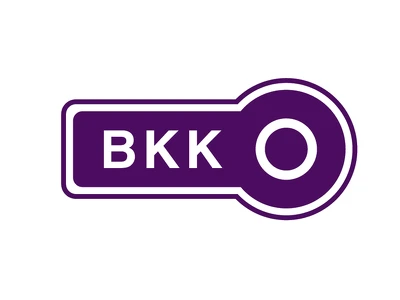Budapest, 9 July 2021 –Pilot microMobility Points have been installed at a new location in Budapest. Through this parking solution available to private and shared bikes and scooters, BKK has taken an impressive step towards attaining sustainable mobility and a liveable city.
Following the earlier installation at four locations in Buda, BKK created two new, so-called microMobility Points along the Id. Antall József rakpart, the section of the Danube embankment in Pest between Margit Bridge and Eötvös tér. In the framework of the Rakpart 2021 event to last until 15 August 2021, visitors can park their bikes, scooters or any other micromobility vehicles at these two sites. The microMobility Points also host temporary MOL Bubi stations that benefit Donkey Republic bike and BIRD e-scooter users as well.
The designated parking space is demarcated by light-green road surface signs, while the spots allocated for the different vehicles feature pictograms. The pilot microMobility Points are accessible in the MOL Bubi app as well as the apps of sharing-based mobility providers collaborating with BKK through the utilisation of geofencing, a method of creating a virtual fence around the area. The goal of this solution is to encourage people to use sustainable vehicles requiring little storage space by offering convenient access and short-term organised parking facilities.
BKK would like to call attention to the fact that due to the reconstruction of the Chain Bridge, the Rakpart 2021 area can only be accessed via stairs when coming from the south on workdays between 8:00 and 17:00. At all other times, the venue has barrier-free access from the direction of both Eötvös tér and Kossuth tér.
What is micromobility and why is it important?
Micromobility constitutes the use of different means of transport that supplement traditional urban transport systems. What they share in common is that they have a relatively low-noise level during operation, they occupy little space, are lightweight and their top speed – which is typically 25 km/hour – fits well into urban transport. Such means of transport are e.g. the bicycle, scooter and their electric versions.
In a densely built-up and heavily populated metropolis, it is of utmost importance that micromobility vehicles become widespread to offer adequate travel alternatives for covering “the last mile” of a journey. As a result, traffic will be calmed, harmful emissions will be reduced, and at the same time, micromobility users can reach their destinations quickly. BKK strives to support the adoption of novel solutions that cater for the latest mobility needs. The transport organiser’s key objective is to apply sustainability aspects as much as possible when planning and organising mobility in the city. Based on the experience to be gained through the pilot project, BKK in collaboration with Budapest Municipality and the different districts plans to create a network of Mobility Points, which would also contribute to a more well-ordered cityscape.

